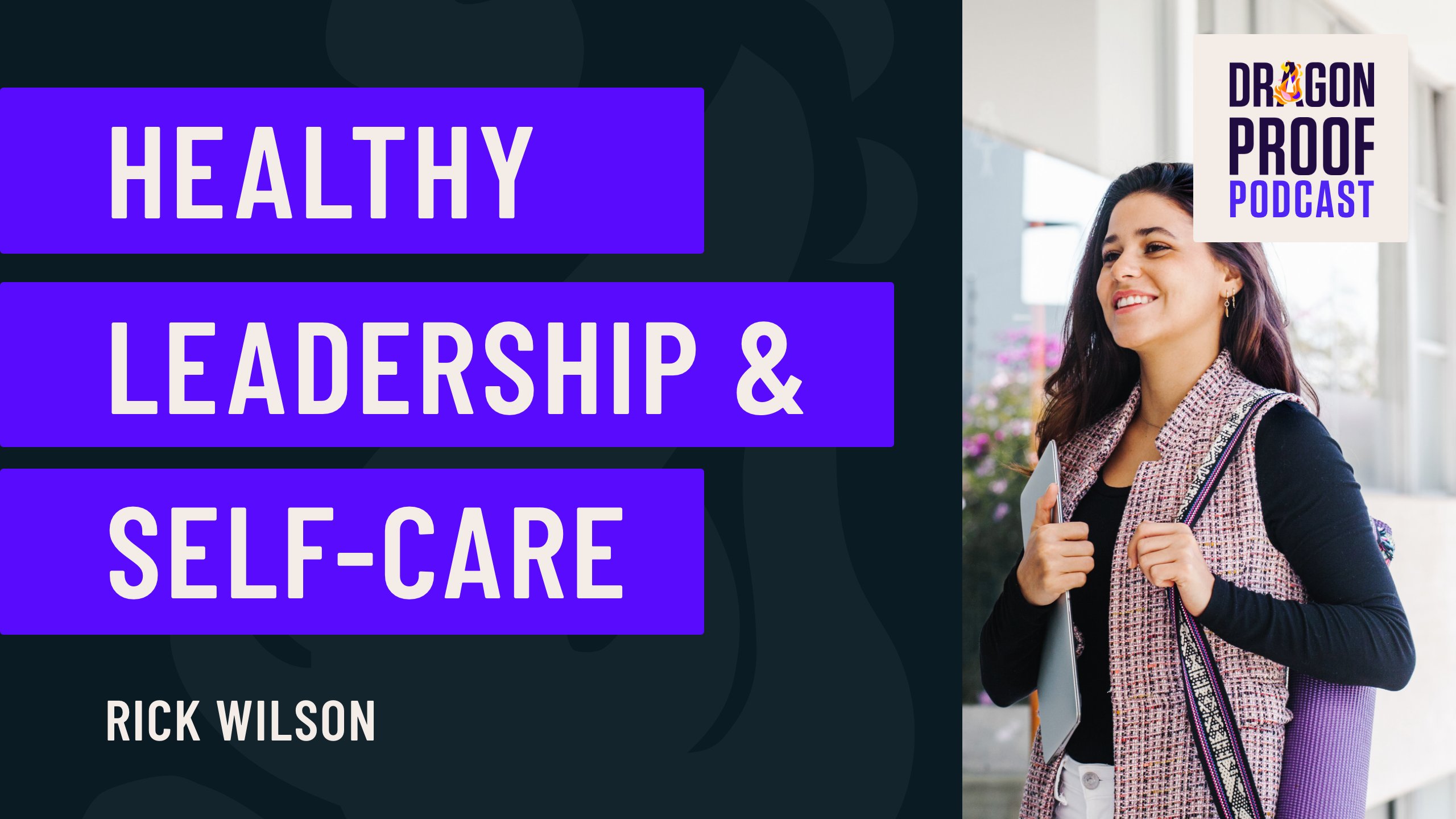By Miva | December 21, 2021

See why top ecommerce brands use Miva’s no-code platform to run
multiple stores, manage massive catalogs, and grow their revenue.
The continued strength of ecommerce throughout the pandemic has been a source of sustenance for sellers and consumers alike, but there is a hidden cost for business leaders who don’t prioritize self-care. Mental health issues in the U.S. significantly increased in 2020 and 2021, and have not yet returned to 2019 levels. In the workplace, McKinsey & Co.’s 2021 economic opportunity analysis found that 30% of workers who left their jobs during this period cited both physical and mental health issues as the reason. Those in leadership roles within organizations often bear these same issues, but as Rick Wilson suggests on the new Dragonproof Podcast, the crisis of self-care for leaders is not limited to the Covid era.
“As you climb out of the early stages of building a sustainable business,” Rick says, “there are always a multitude of new problems you’ll face, and they're not all about business strategy. Personal blind spots are universal, but left unchecked they can harm professional life as well.”
Often, the exact qualities which draw people to leadership careers can be roadblocks to good personal wellbeing. Traits like “single-minded focus,” “blinding ambition,” and “challenging the status quo” may be what it takes to become a successful entrepreneur, but they also paint a picture of individuals who don’t have the time to take care of themselves.
“Those qualities can help people come up with new ideas for products, and take chances that other people wouldn't take,” Rick notes, “but they also ensure huge self-care breakdowns. Healthy eating, exercise, boundary-setting, and prioritizing work-life balance can fall by the wayside.”
Now, a complete suite of self-care priorities and benefits have begun to mainstream for U.S. workers, as the pandemic has spurred a reckoning over just how valuable those leadership traits really are.
John Donahoe, CEO of Nike, famously has a very rigorous self-care routine. Physical habits like waking up at 5:30am, controlling diet, and working with a trainer are balanced with mental therapies like meditation and philosophical exploration. Not every executive will benefit from the 10-day silent retreats that John attends, but all need to make a real action plan for things that fall outside of company strategy, such as nourishment, time, and boundaries.
“It's hard to keep things like negative emotions, stress, poor health, and poor eating from turning into poor decision-making as a business person,” Rick says. “So it becomes imperative that if you're going to be in the arena with the dragons, you have to be a healthy leader. That doesn't just mean having a successful business or caring about your employees...you also have to be personally healthy. How you get there is unique to you, but what’s important is that you move in that direction.”
A compelling mission and a great culture contribute to a successful workforce, but non-verbal, “intangible” aspects of leadership also play a huge role in worker satisfaction. Leaders within an organization set the tone for their workers with their personal health, values, and communication style.
“It goes way beyond just eating well, working out and getting rest,” Rick says. “Your values become modeled too. A simple formula is this: I look at the person I want to be, and then I try to model that through my behavior in my life and in work. Employees will naturally self-select around the environment you create. So a good question to ask is, “What example do my personal care practices I set for the team I work with? And who would or wouldn’t want to work with me based on those things?”
“Sustainable businesses and sustainable personal wellbeing are intricately tied together,” Rick concludes, “if you don't solve the dilemma of self-care, you will not succeed in the long run.”
To hear more about the value of self-care in a strategic business plan, please visit the Dragonproof Ecommerce website.
Back to topNo worries, download the PDF version now and enjoy your reading later...
Download PDF Miva
Miva
Miva offers a flexible and adaptable ecommerce platform that evolves with businesses and allows them to drive sales, maximize average order value, cut overhead costs, and increase revenue. Miva has been helping businesses realize their ecommerce potential for over 20 years and empowering retail, wholesale, and direct-to-consumer sellers across all industries to transform their business through ecommerce.
Visit Website